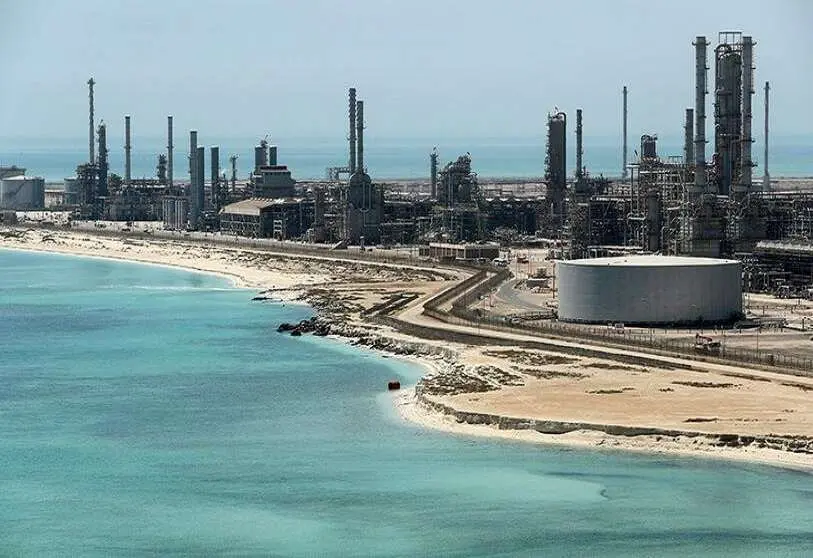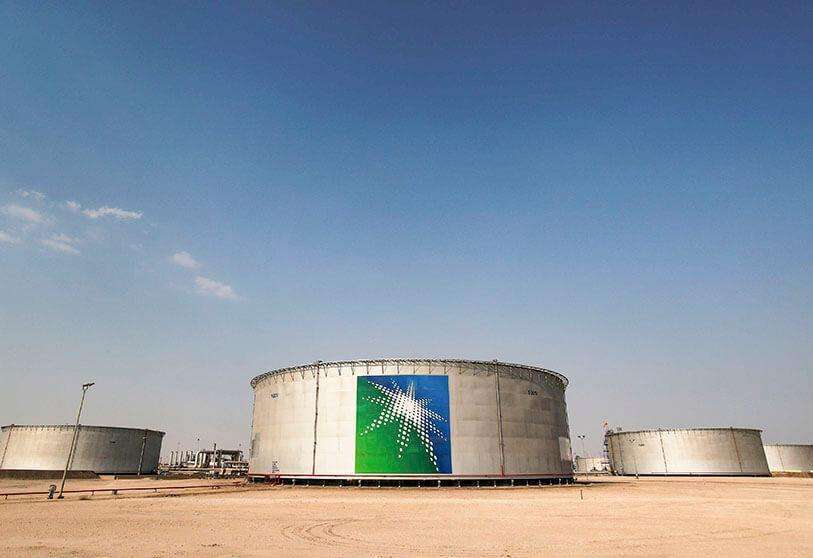Saudi Aramco remains Middle East's most valuable company

Saudi Aramco has retained its position as the most valuable brand in the Middle East, according to the annual Brand Finance Global 500 report. The Saudi oil company has an estimated value of $37.5 billion and is ranked 33rd.
After a year of financial losses caused by COVID-19, Saudi Aramco has dropped several places in the rankings. The study listed the oil company at number 24 in 2020, with a value of approximately $46.8bn, before registering a 20 per cent drop in valuation.
"At present its scale is enormous, but its brand value is at an early stage of development. We believe that over the next decade the brand will grow from strength to strength as it enters the global stage," said David Haigh, chief executive of Brand Finance.
Haigh acknowledged the role of Saudi Aramco, noting that it is "the hidden giant of the oil industry whose brand has finally emerged into the spotlight". The CEO of Brand Finance even ventured a prediction: "Saudi Aramco aspires to become a recognised consumer brand".
Beyond the British consultancy's report, the drop in demand and prices throughout 2020 has translated into a decline in Aramco's net profits. The oil company earned $11.789 billion in the third quarter of the year, 44.6% less than in the same period of 2019.
Despite its annual decline, the company continues to lead the Middle East in economic terms. Saudi Aramco leads its direct competitors in the region by a considerable distance. The next Arab company on the list is the Emirati oil company ADNOC, ranked 163rd.
However, ADNOC has proven to be more resilient than the Saudi company. The Abu Dhabi-based company - considered to be the fourth largest oil company in the world - has reduced the drop in its value by only 6%, as well as three positions in the ranking.
Haigh praised the company, adding that it "plays a key role in driving local industry growth, supporting Abu Dhabi's global soft power position and promoting the Emirates' sustainable economic development goals".
Saudi Aramco and ADNOC were not the only representatives from the region. The 500 most valuable companies also included Saudi Arabian and Emirati telecommunications providers STC and Etisalat, Qatar National Bank, Dubai's Emirates Airline and Saudi petrochemicals company SABIC.
The survey data show that, despite attempts at economic diversification, the Middle East's economic representation is dominated by companies from the oil sector.

The COVID-19 crisis has forced countries that base their economies on oil production to find alternatives. Saudi Arabia's de facto leader, Mohammed bin Salman, has taken the lead on this issue.
The past drop in oil prices prompted the crown prince to accelerate a series of economic projects that would allow the kingdom to open up new revenue streams. His chances of success lie in nurturing the PIF, the Saudi sovereign wealth fund, from which the funds are drawn.
A subsidiary of the oil group, Saudi Aramco Development Company, today announced a partnership with Google Cloud to offer high-performance cloud services to enterprise customers in Saudi Arabia. Investors anticipate a market opportunity of up to $10 billion by 2030.
This move complements those of Mohammed bin Salman, who is seeking to attract foreign investors to fund the country's modernisation and stimulate the creation of new industries. The aim is to end Saudi dependence on oil and transform the Kingdom into a global investment power with a diversified economy.
This goal is not new. Last year, Saudi Aramco undertook the largest IPO in history. The aim was to allocate the proceeds of the operation to FIP, and to begin the process of diversification. However, after the fall in prices and demand, this action was not enough.
A year later, Saudi Aramco is omitting some carbon emissions data from investors, according to Bloomberg. The oil company is trying to reduce pressure from activists and avoid investor flight at all costs. At this point it would put the House of Saud in a complex situation, as the 33rd most valuable company in the world has no capacity to lift the Saudi economy.










